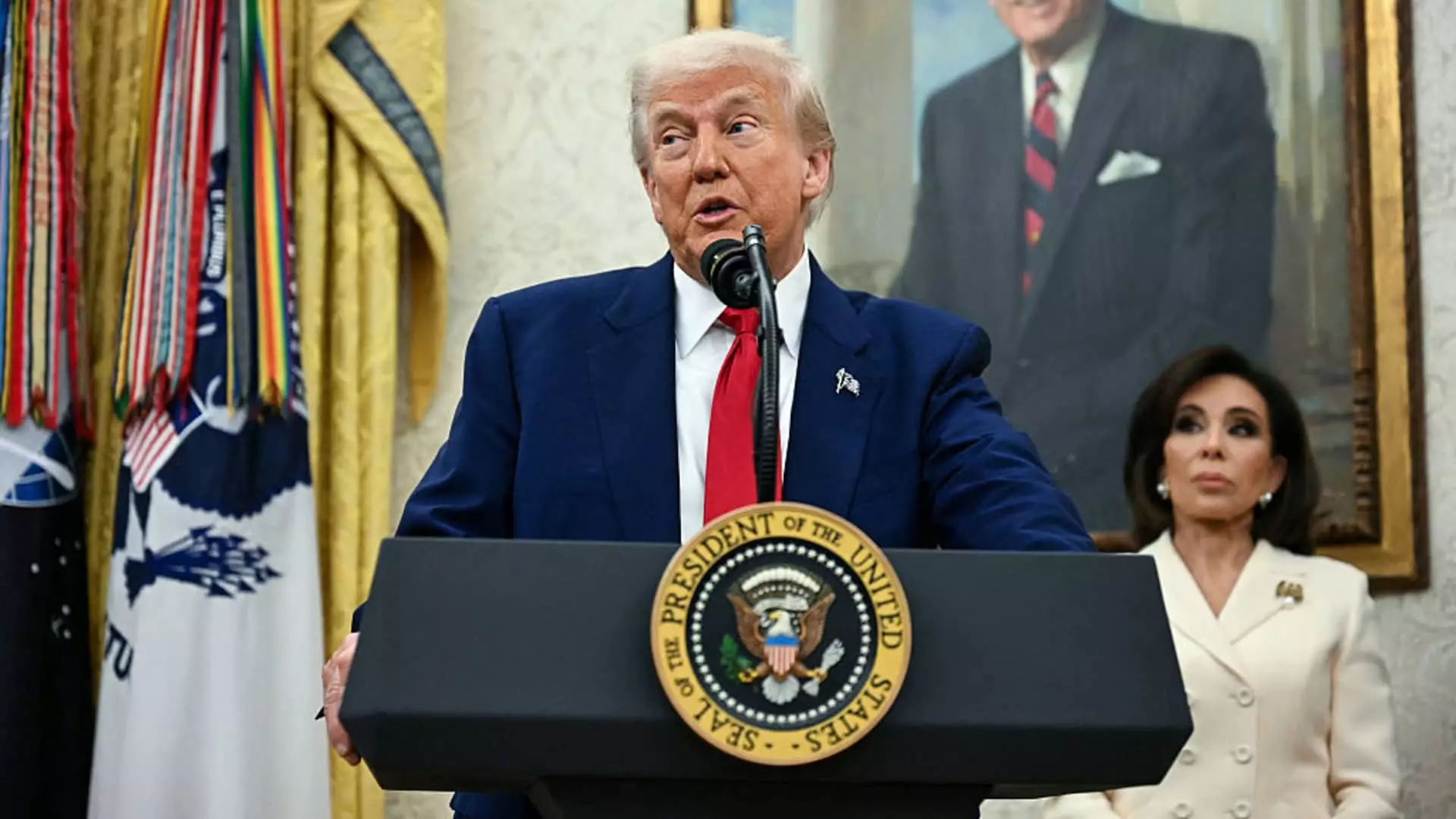The term “TACO,” which stands for “Trump Always Chickens Out,” has emerged as a sardonic commentary on President Donald Trump’s fluctuating approach to tariffs. A label spawned from the chaos of his negotiations, it captures a repetitious pattern where Trump’s brash declarations of imposing severe tariffs on trade partners lead to immediate market distress, only for him to retreat shortly thereafter, prompting a collective sigh of relief among stakeholders. This cycle transcends mere economic tactics; it reveals a deep-seated volatility, reflecting both a personal bravado and a strategic unpredictability that is as troubling as it is baffling.
Trump is often viewed as a master negotiator, employing brash rhetoric that suggests strength. However, the frequent backpedaling that follows each dramatic tariff announcement throws doubt on this narrative. It raises uncomfortable questions about leadership qualities in a global market where consistency and reliability are paramount. Instead of securing long-term benefits for the U.S., these tactics risk undermining economic stability—in essence, a pyrrhic victory that ultimately serves his dialogue rather than American interests.
The Illusion of Negotiation
What Trump labels as “negotiation tactics” might be better understood as a gamble, one that can either pay off or lead to disastrous outcomes. When he boasts of eliciting a response from the European Union simply by suggesting crushing tariffs, he signals a superficial understanding of international trade mechanics. The reality is this approach creates a zero-sum game where any temporary gains are shadowed by the long-term implications of instilling distrust among allies.
For instance, consider how fervently the stock market reacts to these indecisive maneuvers—rising when tariffs are postponed, only to plummet with their reemergence. Investors are left to navigate a minefield of uncertainty, where the specter of a Trade War looms bigger with each tweet. This trade threat dynamic isn’t just a matter of short-term financial fluctuations; it reflects a broader trend where unpredictability can alienate allies and embolden adversaries.
The Consequences of Disruption
In the grander scheme of President Trump’s tariff strategy, one must ponder the implications of a transactional worldview. By positioning tariffs as tools of negotiation, he may end up perpetuating animosity rather than fostering mutual understanding. The EU’s hesitations in engaging during tariffs highlight a pivotal shift in global geopolitical dynamics that further complicates American diplomacy.
Furthermore, the underlying message is a double-edged sword: while it may resonate with a base seeking to reclaim America’s lost manufacturing prowess, the constant dance between threats and concessions can alienate potential allies. As it stands, the notion of America’s stature in the global marketplace is at risk of being perceived as erratic—a far cry from the strength that was promised.
Ultimately, the ongoing struggle to balance assertiveness with cooperation suggests that mere bravado cannot mask the fundamental complexities of trade relationships. A successful foreign policy rests on building alliances and negotiating with credence, rather than on leveraging fear and unpredictability. President Trump’s approach may seem audacious, but it stands at the precipice of isolating the U.S. rather than uniting it in a world that thrives on collaborative economic engagement.


Leave a Reply